In the remote village of Umalulu, we toured a school where nearly every child between the ages of 6 and 12 has already been infected with malaria—some on multiple occasions. The local yearly...
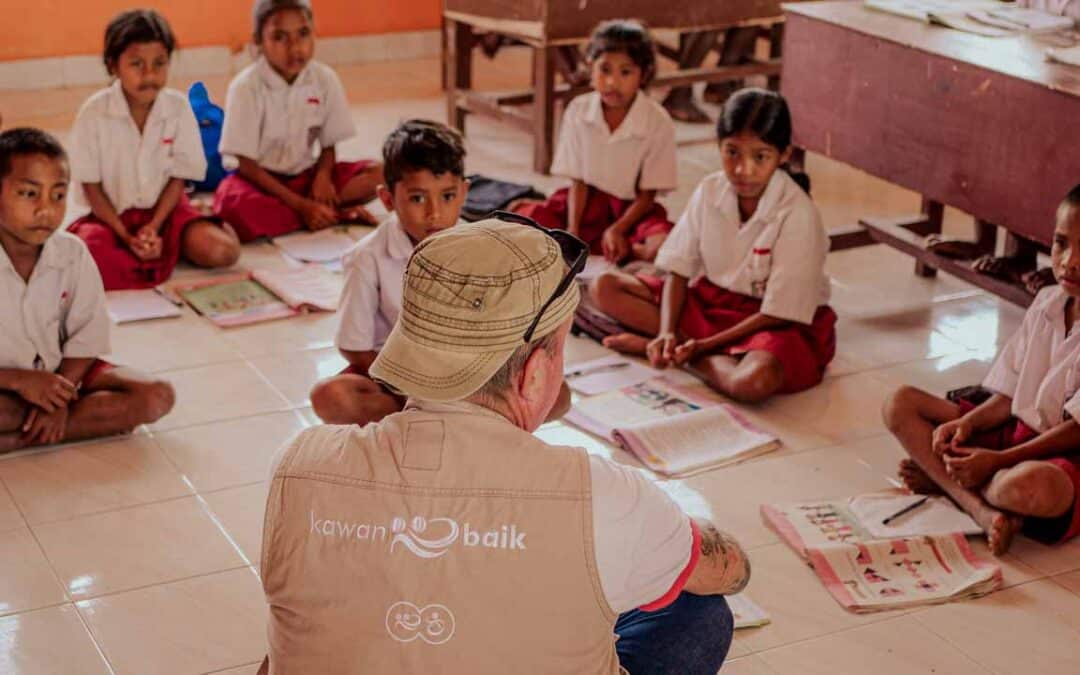
We will construct eight ferrocement tanks in Hambarita to provide clean water to isolated families. Six of these are currently funded, but two remain unfunded. We require CHF 2,300 for each tank. Your support guarantees access to clean water for the most remote communities. Donate now and be part of this life-changing project.
Join us in making a meaningful impact! Fair Future is a source of solutions and actions in eastern Indonesia, dedicated to fighting social and medical injustice. Our mission is to ensure that everyone has access to healthcare, clean water, education and the promise of a better future.
Since 2008, Fair Future has been bringing healthcare, clean water, and real solutions to ultra-rural communities where no one else goes. Your support fuels this mission. Thank you!
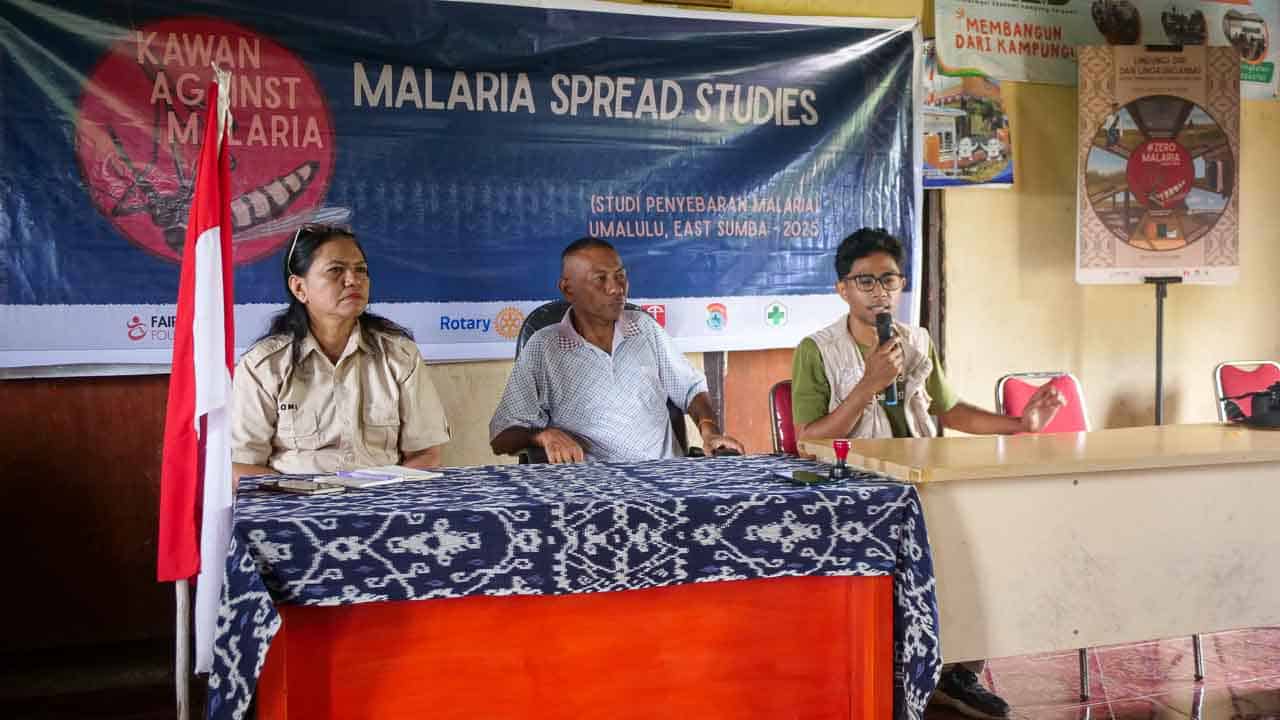
In April 2025, the Fair Future Foundation launched the Malaria Spread Studies program in East Sumba, with a focus on the ultra-rural village of Umalulu. This region has long struggled with malaria, with nearly 55% of the population recently testing positive. Despite years of endemic presence, little has been done to understand why malaria continues to thrive here.
The Malaria Spread Studies aim to diagnose the real situation before proposing any solutions, just as a doctor would never prescribe medicine without first understanding the illness. For the first time, we are conducting a comprehensive field investigation to map out the factors that fuel malaria transmission.
To carry out this program, we developed a specialised digital tool: the Kawan Against Malaria App ("Good Friends Against Malaria"). This application enables local teams to survey every household in Umalulu by asking 65 targeted questions. The study is based on three key pillars:
This approach is unique in an area where resources are minimal and where little support exists beyond minimal governmental programs. Thanks to collaboration with local authorities, Kawan Baik Indonesia, Rotary International, and Rotary Against Malaria, this study aims to establish a precise understanding that will inform future prevention and treatment actions.
The Malaria Spread Studies are not just about understanding the disease; they are also about preventing its spread. They aim to spread awareness, give communities a voice, provide concrete data for strategic interventions, and create a model that can be replicated across other malaria-endemic regions.
Alex Wettstein, for Fair Future Foundation
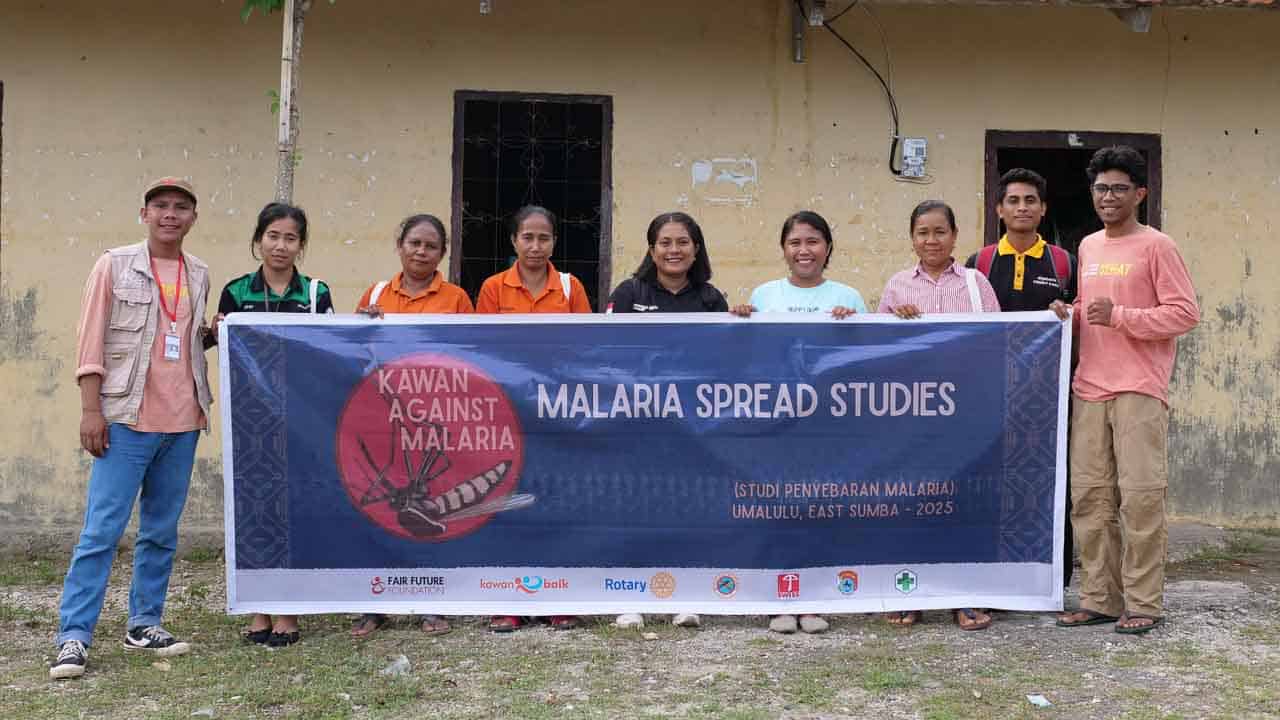
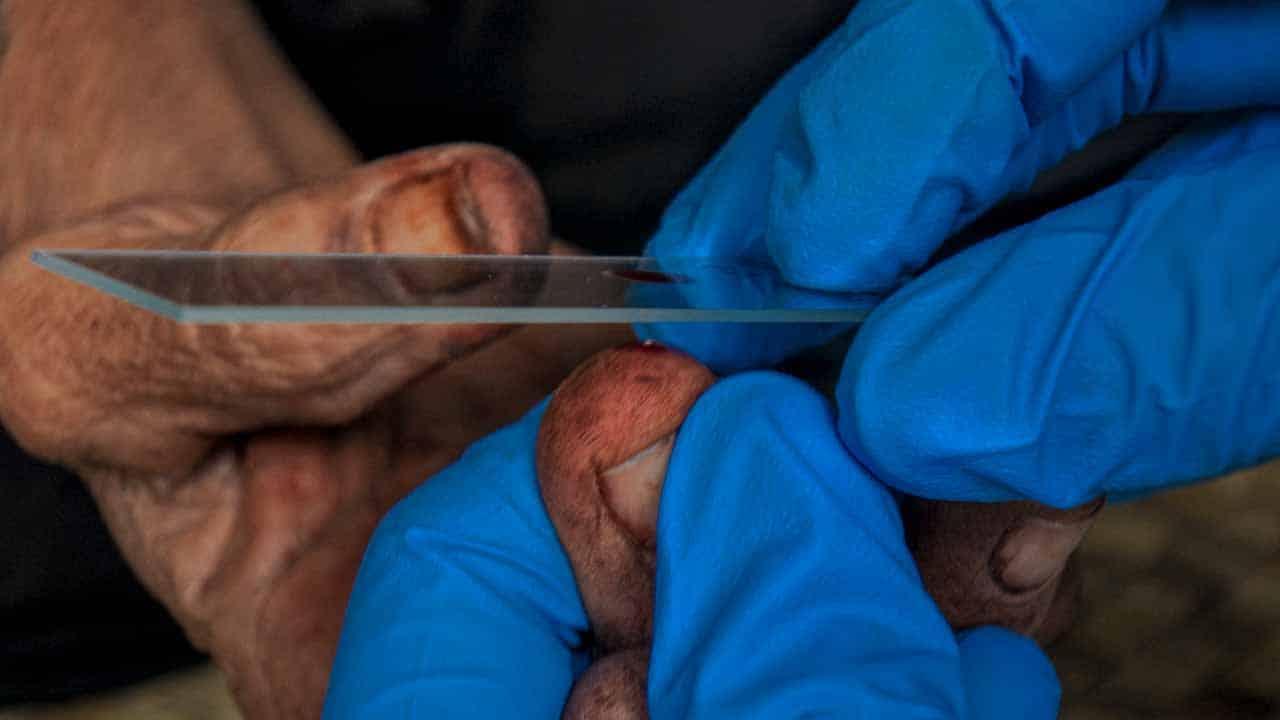




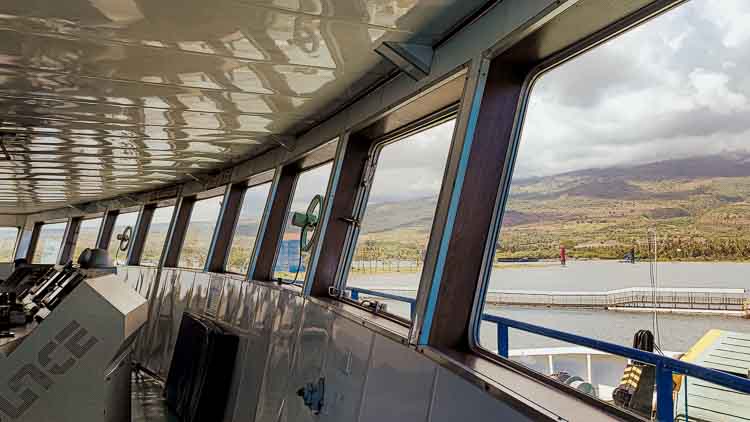



Reaching the remote villages of East Sumba poses a significant challenge. The absence of roads, asphalt, and infrastructure makes travel difficult. The landscape is steep and rugged, often rendering it nearly impassable and transforming short distances into long, tiring treks. In certain areas, covering just two kilometers can take several hours due to these harsh conditions.
For each mission, we must bring along all necessary supplies. These villages lack water, electricity, and essential resources—essentially everything. Even for a brief stay of one or two days, we must transport our food, cooking essentials, and drinking water. Every medical instrument and SolarBuddy lamp needs to be manually carried in large quantities alongside packages of food that collectively weigh several tons.
To reach these villages, we must traverse dangerous and unmaintained paths, where vehicles risk getting stuck, breaking down, or overturning. Each journey involves calculated risks because these communities would remain isolated from essential resources without our efforts.
In the face of danger, we continue our efforts—for these journeys deliver more than just essential supplies. They bring light, medical aid, nourishment, and clean water to those without other means of access. Each kilometer traveled signifies a village reached, a child safeguarded, and hope restored for families.

Reaching the remote villages of East Sumba poses a significant challenge. The absence of roads, asphalt, and infrastructure makes travel difficult. The landscape is steep and rugged, often rendering it nearly impassable and transforming short distances into long, tiring treks. In certain areas, covering just two kilometers can take several hours due to these harsh conditions.
For each mission, we must bring along all necessary supplies. These villages lack water, electricity, and essential resources—essentially everything. Even for a brief stay of one or two days, we must transport our food, cooking essentials, and drinking water. Every medical instrument and SolarBuddy lamp needs to be manually carried in large quantities alongside packages of food that collectively weigh several tons.
To reach these villages, we must traverse dangerous and unmaintained paths, where vehicles risk getting stuck, breaking down, or overturning. Each journey involves calculated risks because these communities would remain isolated from essential resources without our efforts.
In the face of danger, we continue our efforts—for these journeys deliver more than just essential supplies. They bring light, medical aid, nourishment, and clean water to those without other means of access. Each kilometer traveled signifies a village reached, a child safeguarded, and hope restored for families.

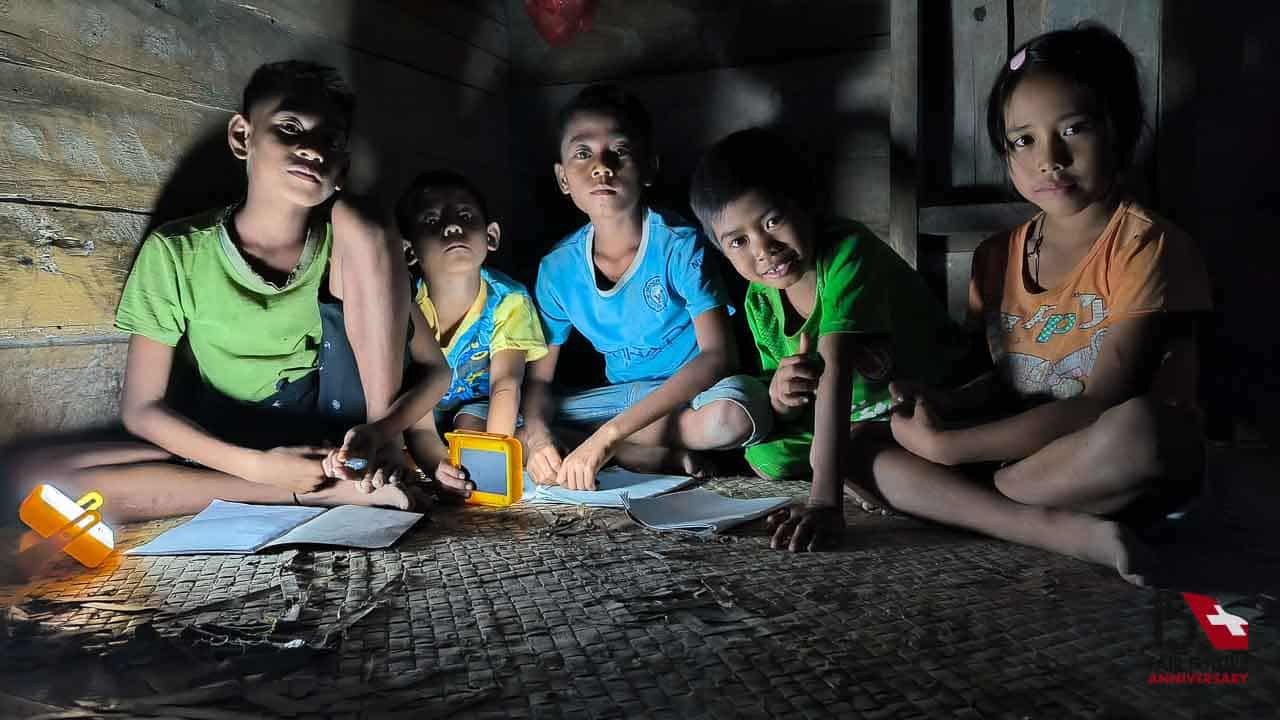

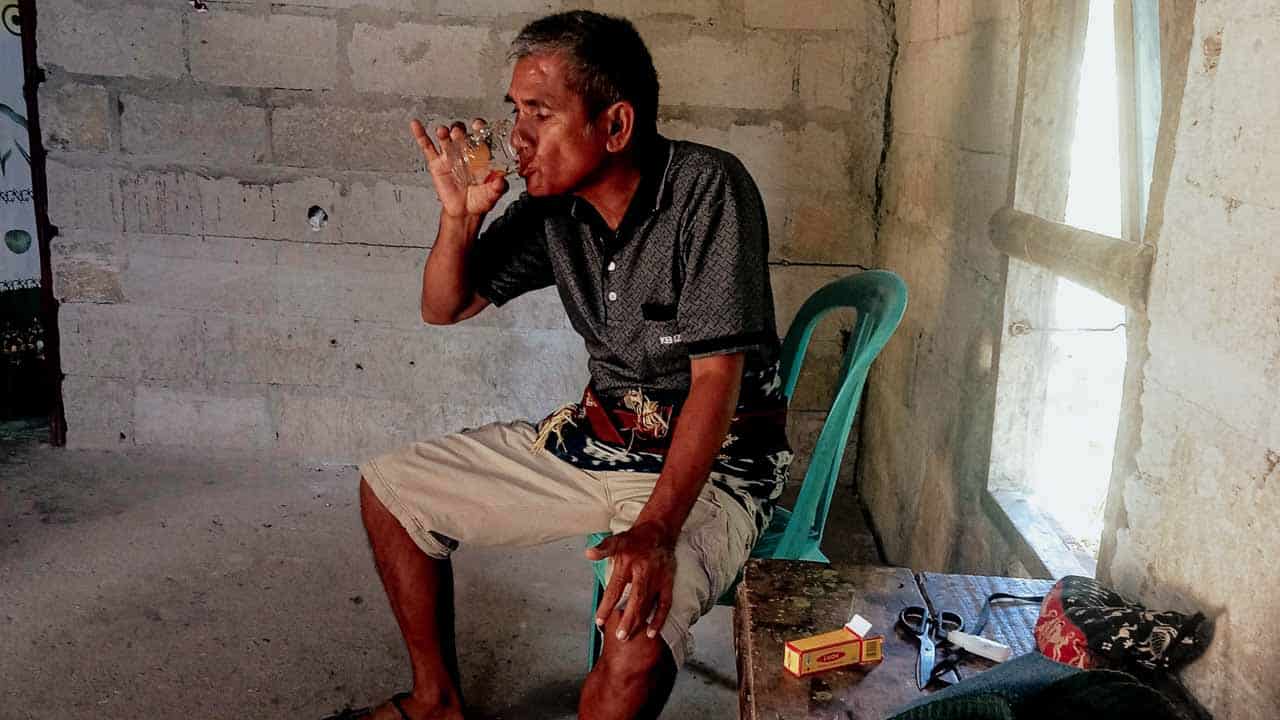


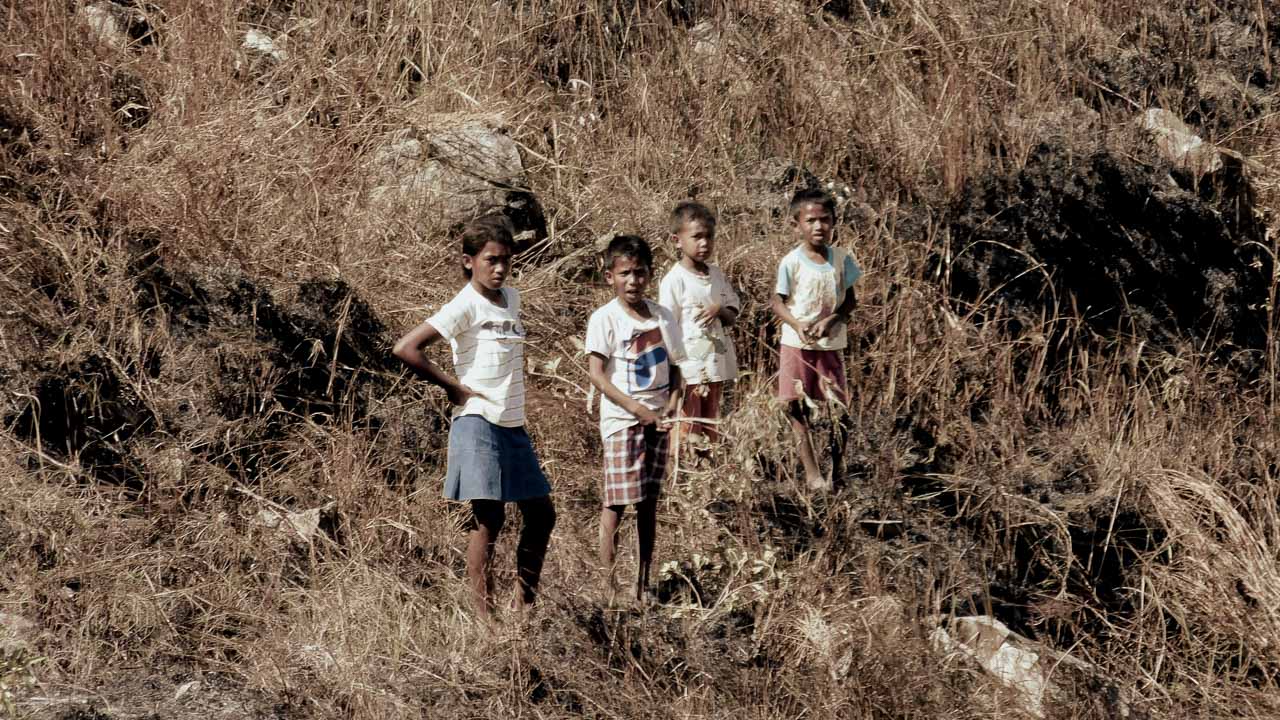
Improve Water Conservation – Implement efficient irrigation systems such as drip irrigation to maximize water use.
Harvest Rainwater – Build reservoirs and rainwater collection systems to store water for dry seasons.
Promote Drought-Resistant Crops – Encourage the cultivation of crops that require less water, such as sorghum and millet.
Enhance Soil Health – Use compost, organic fertilizers, and crop rotation to maintain soil fertility and moisture retention.
Reforest and Protect Natural Ecosystems – Plant trees and protect forests to reduce soil erosion and improve local rainfall patterns.
Develop Sustainable Farming Practices – Train farmers in agroecological techniques to make agriculture more resilient to climate change.
Ensure Access to Clean Water – Expand programs like Fair Future’s Water Connections to provide sustainable water solutions.
Reduce Post-Harvest Losses – Improve food storage, drying techniques, and pest control to prevent waste.
Strengthen Community Awareness – Conduct educational campaigns on sustainable agriculture, water conservation, and climate adaptation.
Invest in Livestock Resilience – Provide proper water access, shade, and alternative feed sources for livestock during droughts.
Improve Market Access for Farmers – Support local cooperatives to ensure fair pricing and reduce economic vulnerability.
Enhance Nutrition Programs – Expand health and nutrition education to combat malnutrition caused by food shortages.
Develop Alternative Livelihoods – Encourage income diversification, such as beekeeping or fish farming, to reduce dependence on crops alone.
Advocate for Climate Action – Push for policies that support sustainable agriculture, reforestation, and water resource management.
Expand Emergency Response Plans – Strengthen local and international efforts to provide immediate relief and long-term support during climate crises.

Improve Water Conservation – Implement efficient irrigation systems such as drip irrigation to maximize water use.
Harvest Rainwater – Build reservoirs and rainwater collection systems to store water for dry seasons.
Promote Drought-Resistant Crops – Encourage the cultivation of crops that require less water, such as sorghum and millet.
Enhance Soil Health – Use compost, organic fertilizers, and crop rotation to maintain soil fertility and moisture retention.
Reforest and Protect Natural Ecosystems – Plant trees and protect forests to reduce soil erosion and improve local rainfall patterns.
Develop Sustainable Farming Practices – Train farmers in agroecological techniques to make agriculture more resilient to climate change.
Ensure Access to Clean Water – Expand programs like Fair Future’s Water Connections to provide sustainable water solutions.
Reduce Post-Harvest Losses – Improve food storage, drying techniques, and pest control to prevent waste.
Strengthen Community Awareness – Conduct educational campaigns on sustainable agriculture, water conservation, and climate adaptation.
Invest in Livestock Resilience – Provide proper water access, shade, and alternative feed sources for livestock during droughts.
Improve Market Access for Farmers – Support local cooperatives to ensure fair pricing and reduce economic vulnerability.
Enhance Nutrition Programs – Expand health and nutrition education to combat malnutrition caused by food shortages.
Develop Alternative Livelihoods – Encourage income diversification, such as beekeeping or fish farming, to reduce dependence on crops alone.
Advocate for Climate Action – Push for policies that support sustainable agriculture, reforestation, and water resource management.
Expand Emergency Response Plans – Strengthen local and international efforts to provide immediate relief and long-term support during climate crises.

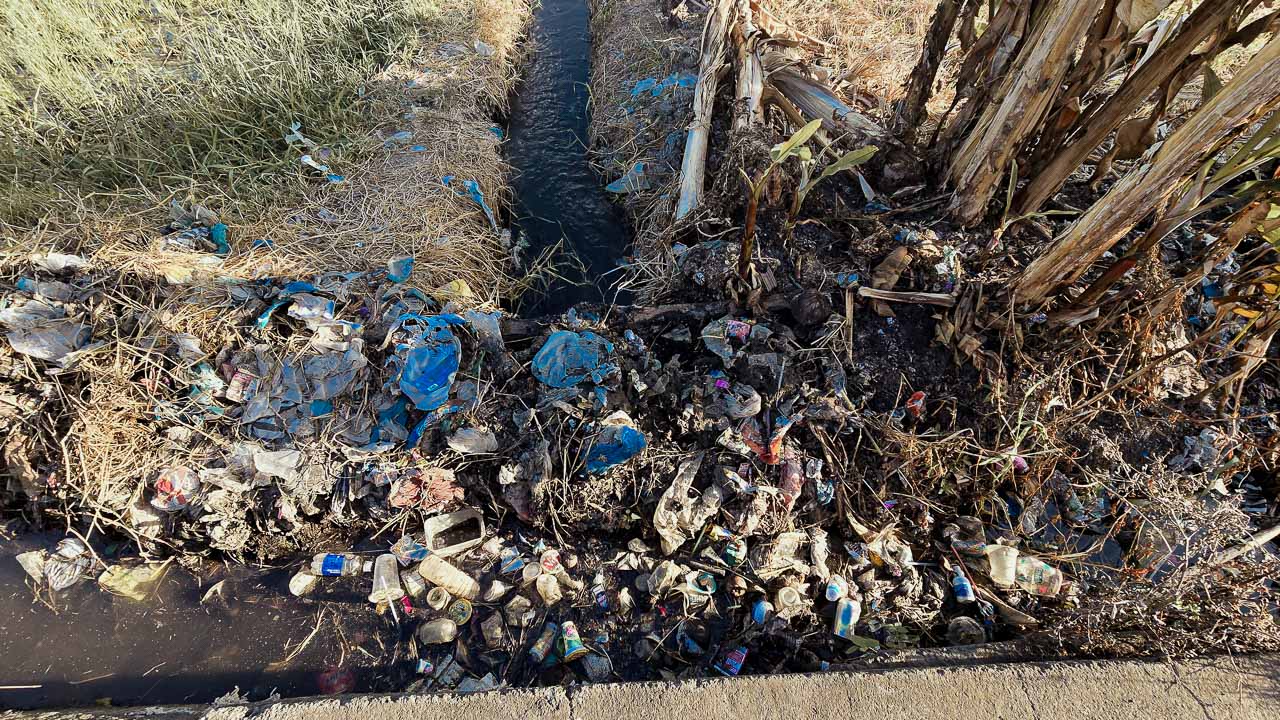
Stop Throwing Waste Anywhere: Dispose of waste in designated areas or bins—never in nature, rivers, or streets.
Separate Organic and Non-Organic Waste: Sorting waste makes recycling and composting easier, reducing landfill overflow.
Compost Organic Waste: Turn food scraps and biodegradable waste into natural fertilizer instead of burning or dumping them.
Say No to Single-Use Plastics: Avoid plastic bags, bottles, and straws—use reusable alternatives to cut plastic pollution.
Burning Trash is Not a Solution: Avoid burning waste, as it releases toxic fumes that harm health and the environment.
Reuse and Repair Whenever Possible: Fix broken items and repurpose materials instead of discarding them.
Recycle and Support Recycling Initiatives: Collect and bring recyclable materials to local recycling centers.
Use Cloth Bags and Reusable Containers: Replace plastic bags and single-use packaging with sustainable alternatives.
Educate Children About Waste Management: Teach kids the importance of cleanliness, sorting waste, and avoiding pollution.
Report Illegal Dumping and Pollution: Hold communities and authorities accountable by reporting improper waste disposal.
Encourage Local Waste Collection Systems: If no waste collection exists, organize community efforts for proper disposal.
Dispose of Hazardous Waste Properly: Batteries, chemicals, and electronics should never be mixed with regular trash.
Reduce Food Waste: Plan meals, store food properly, and donate excess food to minimize waste.
Participate in Community Clean-Up Drives: Join or organize clean-up events to keep streets, rivers, and public areas clean.
Support Policies and Laws on Waste Management: Advocate for government action to improve waste disposal infrastructure.
Use Eco-Friendly Personal Hygiene Products: Choose reusable diapers, cloth napkins, and biodegradable soaps.
Install and Use Community Waste Bins: Ensure waste bins are accessible in villages, markets, and public areas.
Protect Water Sources from Contamination: Keep trash and waste away from wells, rivers, and drinking water sources.
Lead by Example: Encourage neighbors and family members by practicing responsible waste management daily.
These actions empower individuals, especially in underdeveloped regions, to take responsibility for waste and create cleaner, healthier communities.

Stop Throwing Waste Anywhere: Dispose of waste in designated areas or bins—never in nature, rivers, or streets.
Separate Organic and Non-Organic Waste: Sorting waste makes recycling and composting easier, reducing landfill overflow.
Compost Organic Waste: Turn food scraps and biodegradable waste into natural fertilizer instead of burning or dumping them.
Say No to Single-Use Plastics: Avoid plastic bags, bottles, and straws—use reusable alternatives to cut plastic pollution.
Burning Trash is Not a Solution: Avoid burning waste, as it releases toxic fumes that harm health and the environment.
Reuse and Repair Whenever Possible: Fix broken items and repurpose materials instead of discarding them.
Recycle and Support Recycling Initiatives: Collect and bring recyclable materials to local recycling centers.
Use Cloth Bags and Reusable Containers: Replace plastic bags and single-use packaging with sustainable alternatives.
Educate Children About Waste Management: Teach kids the importance of cleanliness, sorting waste, and avoiding pollution.
Report Illegal Dumping and Pollution: Hold communities and authorities accountable by reporting improper waste disposal.
Encourage Local Waste Collection Systems: If no waste collection exists, organize community efforts for proper disposal.
Dispose of Hazardous Waste Properly: Batteries, chemicals, and electronics should never be mixed with regular trash.
Reduce Food Waste: Plan meals, store food properly, and donate excess food to minimize waste.
Participate in Community Clean-Up Drives: Join or organize clean-up events to keep streets, rivers, and public areas clean.
Support Policies and Laws on Waste Management: Advocate for government action to improve waste disposal infrastructure.
Use Eco-Friendly Personal Hygiene Products: Choose reusable diapers, cloth napkins, and biodegradable soaps.
Install and Use Community Waste Bins: Ensure waste bins are accessible in villages, markets, and public areas.
Protect Water Sources from Contamination: Keep trash and waste away from wells, rivers, and drinking water sources.
Lead by Example: Encourage neighbors and family members by practicing responsible waste management daily.
These actions empower individuals, especially in underdeveloped regions, to take responsibility for waste and create cleaner, healthier communities.



Since 2008, Fair Future has been bringing healthcare, clean water, and real solutions to ultra-rural communities where no one else goes. Your support fuels this mission. Thank you!
Since 2008, Fair Future has been bringing healthcare, clean water, and real solutions to ultra-rural communities where no one else goes. Your support fuels this mission. Thank you!









Reaching the remote villages of East Sumba poses a significant challenge. The absence of roads, asphalt, and infrastructure makes travel difficult. The landscape is steep and rugged, often rendering it nearly impassable and transforming short distances into long, tiring treks. In certain areas, covering just two kilometers can take several hours due to these harsh conditions.
For each mission, we must bring along all necessary supplies. These villages lack water, electricity, and essential resources—essentially everything. Even for a brief stay of one or two days, we must transport our food, cooking essentials, and drinking water. Every medical instrument and SolarBuddy lamp needs to be manually carried in large quantities alongside packages of food that collectively weigh several tons.
To reach these villages, we must traverse dangerous and unmaintained paths, where vehicles risk getting stuck, breaking down, or overturning. Each journey involves calculated risks because these communities would remain isolated from essential resources without our efforts.
In the face of danger, we continue our efforts—for these journeys deliver more than just essential supplies. They bring light, medical aid, nourishment, and clean water to those without other means of access. Each kilometer traveled signifies a village reached, a child safeguarded, and hope restored for families.

Reaching the remote villages of East Sumba poses a significant challenge. The absence of roads, asphalt, and infrastructure makes travel difficult. The landscape is steep and rugged, often rendering it nearly impassable and transforming short distances into long, tiring treks. In certain areas, covering just two kilometers can take several hours due to these harsh conditions.
For each mission, we must bring along all necessary supplies. These villages lack water, electricity, and essential resources—essentially everything. Even for a brief stay of one or two days, we must transport our food, cooking essentials, and drinking water. Every medical instrument and SolarBuddy lamp needs to be manually carried in large quantities alongside packages of food that collectively weigh several tons.
To reach these villages, we must traverse dangerous and unmaintained paths, where vehicles risk getting stuck, breaking down, or overturning. Each journey involves calculated risks because these communities would remain isolated from essential resources without our efforts.
In the face of danger, we continue our efforts—for these journeys deliver more than just essential supplies. They bring light, medical aid, nourishment, and clean water to those without other means of access. Each kilometer traveled signifies a village reached, a child safeguarded, and hope restored for families.







Improve Water Conservation – Implement efficient irrigation systems such as drip irrigation to maximize water use.
Harvest Rainwater – Build reservoirs and rainwater collection systems to store water for dry seasons.
Promote Drought-Resistant Crops – Encourage the cultivation of crops that require less water, such as sorghum and millet.
Enhance Soil Health – Use compost, organic fertilizers, and crop rotation to maintain soil fertility and moisture retention.
Reforest and Protect Natural Ecosystems – Plant trees and protect forests to reduce soil erosion and improve local rainfall patterns.
Develop Sustainable Farming Practices – Train farmers in agroecological techniques to make agriculture more resilient to climate change.
Ensure Access to Clean Water – Expand programs like Fair Future’s Water Connections to provide sustainable water solutions.
Reduce Post-Harvest Losses – Improve food storage, drying techniques, and pest control to prevent waste.
Strengthen Community Awareness – Conduct educational campaigns on sustainable agriculture, water conservation, and climate adaptation.
Invest in Livestock Resilience – Provide proper water access, shade, and alternative feed sources for livestock during droughts.
Improve Market Access for Farmers – Support local cooperatives to ensure fair pricing and reduce economic vulnerability.
Enhance Nutrition Programs – Expand health and nutrition education to combat malnutrition caused by food shortages.
Develop Alternative Livelihoods – Encourage income diversification, such as beekeeping or fish farming, to reduce dependence on crops alone.
Advocate for Climate Action – Push for policies that support sustainable agriculture, reforestation, and water resource management.
Expand Emergency Response Plans – Strengthen local and international efforts to provide immediate relief and long-term support during climate crises.

Improve Water Conservation – Implement efficient irrigation systems such as drip irrigation to maximize water use.
Harvest Rainwater – Build reservoirs and rainwater collection systems to store water for dry seasons.
Promote Drought-Resistant Crops – Encourage the cultivation of crops that require less water, such as sorghum and millet.
Enhance Soil Health – Use compost, organic fertilizers, and crop rotation to maintain soil fertility and moisture retention.
Reforest and Protect Natural Ecosystems – Plant trees and protect forests to reduce soil erosion and improve local rainfall patterns.
Develop Sustainable Farming Practices – Train farmers in agroecological techniques to make agriculture more resilient to climate change.
Ensure Access to Clean Water – Expand programs like Fair Future’s Water Connections to provide sustainable water solutions.
Reduce Post-Harvest Losses – Improve food storage, drying techniques, and pest control to prevent waste.
Strengthen Community Awareness – Conduct educational campaigns on sustainable agriculture, water conservation, and climate adaptation.
Invest in Livestock Resilience – Provide proper water access, shade, and alternative feed sources for livestock during droughts.
Improve Market Access for Farmers – Support local cooperatives to ensure fair pricing and reduce economic vulnerability.
Enhance Nutrition Programs – Expand health and nutrition education to combat malnutrition caused by food shortages.
Develop Alternative Livelihoods – Encourage income diversification, such as beekeeping or fish farming, to reduce dependence on crops alone.
Advocate for Climate Action – Push for policies that support sustainable agriculture, reforestation, and water resource management.
Expand Emergency Response Plans – Strengthen local and international efforts to provide immediate relief and long-term support during climate crises.


Stop Throwing Waste Anywhere: Dispose of waste in designated areas or bins—never in nature, rivers, or streets.
Separate Organic and Non-Organic Waste: Sorting waste makes recycling and composting easier, reducing landfill overflow.
Compost Organic Waste: Turn food scraps and biodegradable waste into natural fertilizer instead of burning or dumping them.
Say No to Single-Use Plastics: Avoid plastic bags, bottles, and straws—use reusable alternatives to cut plastic pollution.
Burning Trash is Not a Solution: Avoid burning waste, as it releases toxic fumes that harm health and the environment.
Reuse and Repair Whenever Possible: Fix broken items and repurpose materials instead of discarding them.
Recycle and Support Recycling Initiatives: Collect and bring recyclable materials to local recycling centers.
Use Cloth Bags and Reusable Containers: Replace plastic bags and single-use packaging with sustainable alternatives.
Educate Children About Waste Management: Teach kids the importance of cleanliness, sorting waste, and avoiding pollution.
Report Illegal Dumping and Pollution: Hold communities and authorities accountable by reporting improper waste disposal.
Encourage Local Waste Collection Systems: If no waste collection exists, organize community efforts for proper disposal.
Dispose of Hazardous Waste Properly: Batteries, chemicals, and electronics should never be mixed with regular trash.
Reduce Food Waste: Plan meals, store food properly, and donate excess food to minimize waste.
Participate in Community Clean-Up Drives: Join or organize clean-up events to keep streets, rivers, and public areas clean.
Support Policies and Laws on Waste Management: Advocate for government action to improve waste disposal infrastructure.
Use Eco-Friendly Personal Hygiene Products: Choose reusable diapers, cloth napkins, and biodegradable soaps.
Install and Use Community Waste Bins: Ensure waste bins are accessible in villages, markets, and public areas.
Protect Water Sources from Contamination: Keep trash and waste away from wells, rivers, and drinking water sources.
Lead by Example: Encourage neighbors and family members by practicing responsible waste management daily.
These actions empower individuals, especially in underdeveloped regions, to take responsibility for waste and create cleaner, healthier communities.

Stop Throwing Waste Anywhere: Dispose of waste in designated areas or bins—never in nature, rivers, or streets.
Separate Organic and Non-Organic Waste: Sorting waste makes recycling and composting easier, reducing landfill overflow.
Compost Organic Waste: Turn food scraps and biodegradable waste into natural fertilizer instead of burning or dumping them.
Say No to Single-Use Plastics: Avoid plastic bags, bottles, and straws—use reusable alternatives to cut plastic pollution.
Burning Trash is Not a Solution: Avoid burning waste, as it releases toxic fumes that harm health and the environment.
Reuse and Repair Whenever Possible: Fix broken items and repurpose materials instead of discarding them.
Recycle and Support Recycling Initiatives: Collect and bring recyclable materials to local recycling centers.
Use Cloth Bags and Reusable Containers: Replace plastic bags and single-use packaging with sustainable alternatives.
Educate Children About Waste Management: Teach kids the importance of cleanliness, sorting waste, and avoiding pollution.
Report Illegal Dumping and Pollution: Hold communities and authorities accountable by reporting improper waste disposal.
Encourage Local Waste Collection Systems: If no waste collection exists, organize community efforts for proper disposal.
Dispose of Hazardous Waste Properly: Batteries, chemicals, and electronics should never be mixed with regular trash.
Reduce Food Waste: Plan meals, store food properly, and donate excess food to minimize waste.
Participate in Community Clean-Up Drives: Join or organize clean-up events to keep streets, rivers, and public areas clean.
Support Policies and Laws on Waste Management: Advocate for government action to improve waste disposal infrastructure.
Use Eco-Friendly Personal Hygiene Products: Choose reusable diapers, cloth napkins, and biodegradable soaps.
Install and Use Community Waste Bins: Ensure waste bins are accessible in villages, markets, and public areas.
Protect Water Sources from Contamination: Keep trash and waste away from wells, rivers, and drinking water sources.
Lead by Example: Encourage neighbors and family members by practicing responsible waste management daily.
These actions empower individuals, especially in underdeveloped regions, to take responsibility for waste and create cleaner, healthier communities.



Since 2008, Fair Future has been bringing healthcare, clean water, and real solutions to ultra-rural communities where no one else goes. Your support fuels this mission. Thank you!
Since 2008, Fair Future has been bringing healthcare, clean water, and real solutions to ultra-rural communities where no one else goes. Your support fuels this mission. Thank you!